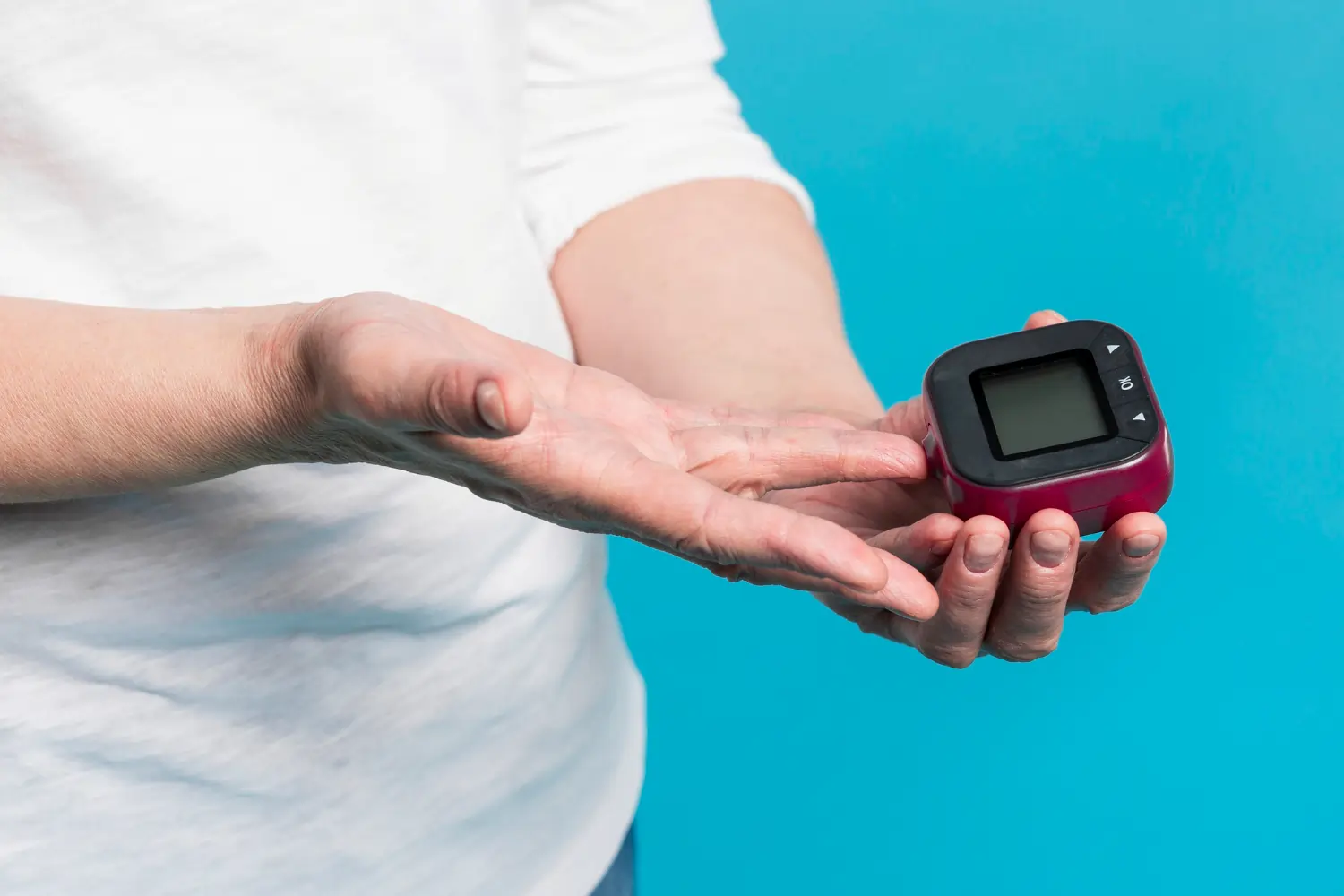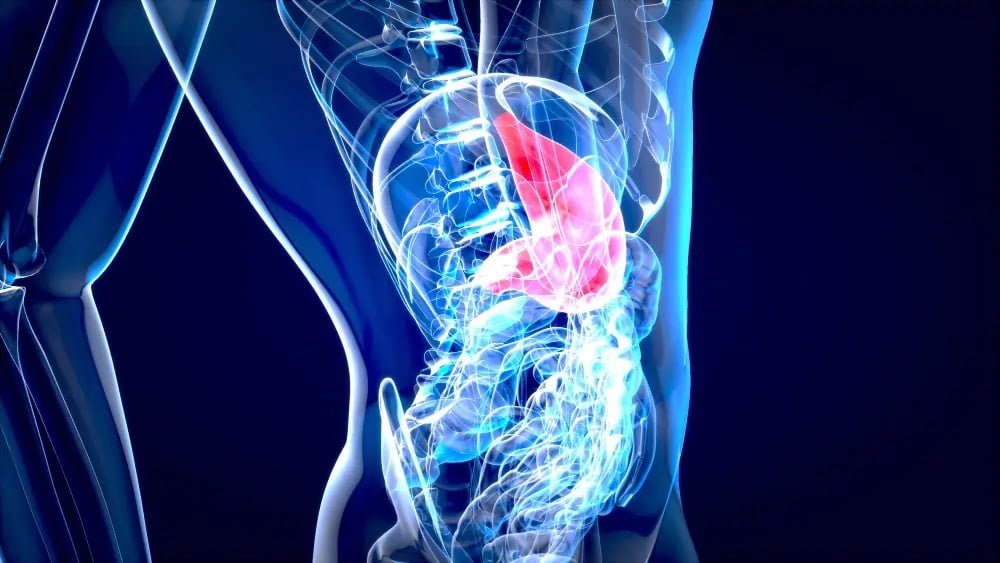
Imagine feeling anxious, weak, and lightheaded seemingly out of nowhere. Such symptoms may cause confusion, especially if you don’t have diabetes. Low blood sugar, also known as hypoglycemia, can affect individuals without diabetes too. This can happen if you take certain medications, have a severe infection, or have other serious issues affecting your organs. In this article, we’ll explore what low blood sugar (hypoglycemia) without diabetes means, its possible causes, symptoms to watch out for, and how to manage and seek support for this condition.
Understanding Low Blood Sugar
Low blood sugar occurs in people without diabetes when your level drops below 55 milligrams per deciliter (mg/dL). Glucose is the primary source of energy for your body’s cells, and maintaining stable blood sugar levels is vital for optimal functioning. However, while low blood sugar is commonly associated with diabetes, it can occur in people who do not have diabetes as well.
What Causes Low Blood Sugar Without Diabetes?
Several factors can contribute to low blood sugar levels, even without having diabetes. Here are a few possible causes to consider:
1. Side effects of certain medications
Some medications, such as insulin or oral diabetes drugs, are designed to lower blood sugar. However, taking too many of these medications or combining them with other medications can lead to low blood sugar levels. It’s essential to carefully follow the prescribed dosage and consult your healthcare provider if you experience any unexpected symptoms.
2. Medical conditions that affect blood sugar levels
Certain medical conditions can disrupt the body’s ability to regulate blood sugar effectively. Conditions like hypothyroidism, liver disease, kidney disorders, and adrenal gland deficiencies can cause low blood sugar. If you have any underlying health conditions, it’s important to discuss the potential impact on blood sugar levels with your healthcare provider.
3. Lifestyle factors
Lifestyle choices can also play a significant role in the development of low blood sugar. Factors like irregular meal timings, skipping meals, excessive alcohol consumption, and consuming high-sugar foods may lead to sudden drops in blood sugar levels. It’s important to maintain a balanced diet and eat regular meals to support stable blood sugar levels. Additionally, regular physical activity and rigorous exercise can deplete glucose levels, causing low blood sugar. It’s crucial to fuel your body with adequate nutrition before and after intense exercise sessions.
Recognizing the Symptoms
It’s crucial to be able to recognize the symptoms of low blood sugar, even if you don’t have diabetes. Early identification allows for prompt action. While symptoms may vary from person to person, the common signs to watch out for include:
– Trembling, palpitations, and feeling jittery
Feeling shaky, having a rapid heartbeat, or experiencing sudden restlessness are common indications of low blood sugar. These symptoms occur because when blood sugar levels are low, the body releases stress hormones like adrenaline, which can cause these physiological responses.
– Fatigue and weakness
Low energy levels and weakness can arise as glucose is not being adequately supplied to the body’s cells. This can leave you feeling lethargic, exhausted, and unable to perform daily activities with your usual energy levels.
– Dizziness and lightheadedness
Feeling light-headed, dizzy, or even fainting can be a result of insufficient glucose reaching the brain. The brain relies heavily on glucose for energy, and when levels are low, it can lead to temporary feelings of disorientation and lack of balance.
– Sweating and clamminess
Experiencing excessive sweating or having cold, clammy skin can be associated with low blood sugar levels. This is the body’s physiological response to low blood sugar as it tries to regulate temperature and maintain homeostasis.
– Hunger pangs
Feeling unusually hungry, even shortly after eating, can be a sign of low blood sugar. When glucose levels drop, the body tries to compensate by triggering hunger signals, urging you to eat and replenish the glucose supply.
– Changes in mood and cognition
Low blood sugar can also impact your mood and cognitive abilities. You may feel irritable, confused, or have difficulty concentrating. The brain relies on glucose as its primary fuel source, so when levels are low, these mental functions can be affected.
Monitoring Your Symptoms
If you experience any of these symptoms, it is essential to test your blood sugar levels to confirm if they are indeed low. Using a glucometer to monitor your blood sugar levels at home can provide valuable insights that help you manage the condition. It’s important to follow the instructions provided with the device and consult with your healthcare provider to understand the target range for your specific situation.
In addition to monitoring your symptoms, it’s important to keep a record of when and how often you experience low blood sugar episodes. This information can help you identify patterns and potential triggers, making it easier to manage and prevent future incidents.
Diagnosis and Testing
Proper diagnosis and testing are essential to accurately determine the cause of low blood sugar without diabetes. Your healthcare provider will consider your medical history, assess your symptoms, and may recommend various tests. Some common diagnostic procedures include:
– Blood glucose tests

Blood glucose tests measure the amount of sugar present in your blood. The most common test is a fasting blood sugar test, where you’ll have your blood drawn after fasting overnight. This test helps evaluate how your body responds to fasting and indicates if low blood sugar is present.
– Continuous glucose monitoring (CGM)
In some cases, your healthcare provider may recommend a continuous glucose monitoring system. This small device is worn on the body and measures glucose levels throughout the day and night. It provides real-time data about your glucose fluctuations, making it easier to identify low blood sugar episodes and potential triggers.
– Other diagnostic tests to consider
Depending on your situation, additional tests may be necessary to identify any underlying medical conditions that contribute to low blood sugar. These tests may include hormonal screenings, liver function tests, kidney function tests, and imaging studies to assess the health of specific organs.
It’s important to follow your healthcare provider’s instructions and communicate any concerns or questions you may have during the diagnostic process. Their expertise will guide you toward an accurate diagnosis and appropriate treatment recommendations.
Treatment Options
Once a diagnosis has been made, managing low blood sugar without diabetes typically involves a combination of lifestyle modifications and, in some cases, medication adjustments. Here are some treatment options to consider:
– Dietary changes and meal planning
A well-balanced diet is crucial in managing low blood sugar levels. It’s important to eat regular meals at consistent times, including a mix of complex carbohydrates, protein, and healthy fats. Focus on whole foods, including fruits, vegetables, whole grains, lean proteins, and nuts. Avoid excessive amounts of high-sugar foods and beverages, which can cause blood sugar spikes followed by drops.
– Physical activity and exercise recommendations
Regular physical activity can help regulate blood sugar levels by improving insulin sensitivity. Engage in moderate-intensity exercises like brisk walking, swimming, or cycling for at least 150 minutes per week, as recommended by health authorities. However, if you have frequent low blood sugar episodes, you may need to adjust your exercise routine or consume a small snack beforehand to prevent glucose depletion.
– Medication adjustments
In some cases, if medication is contributing to low blood sugar, your healthcare provider may recommend adjusting the dosage or prescribing alternative medications. Never adjust or stop taking medications without consulting your healthcare provider first.
It’s important to work closely with your healthcare provider or a registered dietitian to create an individualized treatment plan that addresses your specific needs and lifestyle factors. They can provide personalized guidance regarding meal planning, and exercise recommendations, and help you understand how medications or other health conditions may affect your blood sugar levels.
Managing Low Blood Sugar Episodes
While prevention is key, it’s important to know how to manage low blood sugar episodes when they occur. Here are some immediate actions to take:
– Consume fast-acting carbohydrates
When you experience low blood sugar symptoms, consuming fast-acting carbohydrates can help raise your blood sugar levels quickly. Examples include fruit juice, glucose tablets, or regular soda. Be cautious not to overconsume, as it’s important to strike a balance and prevent blood sugar levels from rising too high.
– Follow up with a balanced meal or snack
After consuming fast-acting carbohydrates, it’s essential to follow up with a balanced meal or snack containing protein, healthy fats, and complex carbohydrates. This combination helps sustain your blood sugar levels and prevents further drops.
– Rest and recover
Resting and allowing your body to recover after a low blood sugar episode is crucial. Give yourself time to regain your energy and monitor your symptoms to ensure they don’t worsen or recur.
Support Strategies
Managing low blood sugar can be challenging, both physically and emotionally. Implementing support strategies can make the journey easier. Consider the following:
– Building a support system
Reach out to friends, family, or support groups who might be going through similar experiences. Sharing your struggles and successes with individuals who understand can provide valuable emotional support.
– Seeking professional guidance
Don’t hesitate to seek professional guidance from a healthcare professional, registered dietitian, or certified diabetes educator. They can offer specialized advice tailored to your specific needs and guide you through the process of managing low blood sugar without diabetes.
When to Consult a Healthcare Provider
While occasional mild low blood sugar episodes may not cause significant concern, there are instances where it’s crucial to consult a healthcare provider. Pay attention to the following red flags and warning signs:
– Frequent or severe episodes
If low blood sugar episodes occur frequently or become severe to the point of causing significant distress or interfering with your daily activities, it’s important to consult a healthcare provider for further evaluation and management strategies.
– Symptoms persist or worsen
If your symptoms persist or worsen despite implementing lifestyle changes and treatment recommendations, it’s essential to seek medical advice. Your healthcare provider may need to reassess your condition and explore additional treatment options.
The Emotional Impact
Living with low blood sugar without diabetes can have a significant emotional impact. It’s normal to feel frustrated, overwhelmed, or anxious about managing this condition. Here are some strategies to help cope:
– Dealing with anxiety and stress
Chronic anxiety and stress can contribute to fluctuations in blood sugar levels. Implement stress management techniques like deep breathing exercises, meditation, or engaging in activities you find relaxing. Seeking counseling or therapy may also help you develop effective coping mechanisms.
– Coping mechanisms and self-care
Engage in self-care activities that promote physical and emotional well-being. Prioritize adequate sleep, engage in hobbies or activities you enjoy, and maintain social connections. Taking care of your overall health can positively impact your ability to manage low blood sugar and improve your resilience.
Living with Low Blood Sugar
Living with low blood sugar without diabetes requires ongoing awareness and diligence. It’s important to remember that everyone’s experience may differ, and finding what works best for you is crucial. Here are a few factors to consider:
– Impact on daily life and routine
Living with low blood sugar may require certain adjustments to your daily routine. It may involve regular meal planning, carrying fast-acting carbohydrates with you, and ensuring you have access to monitoring devices, medications (if prescribed), and support systems.
– Communicating with friends, family, and coworkers
Educating your close friends, family members, and coworkers about your condition is essential. Letting them know the signs and symptoms of low
FAQs: Low Blood Sugar (Hypoglycemia) Without Diabetes
Q: Can low blood sugar be dangerous?
A: Yes, low blood sugar can lead to severe complications if left untreated. It’s important to act promptly when symptoms arise and consult with a healthcare professional to assess the severity and determine appropriate management strategies.
Q: Is low blood sugar hereditary?
A: While low blood sugar itself is not hereditary, certain underlying medical conditions that can cause low blood sugar may have a genetic component. Consult with a healthcare professional to better understand your specific situation.
Q: Can low blood sugar cause weight gain?
A: Generally, low blood sugar is not directly linked to weight gain. However, it might trigger hunger, leading to overeating and potential weight gain in some individuals. Balanced eating habits and seeking guidance from a healthcare professional can help manage this.
Q: Can low blood sugar affect cognitive function?
A: Yes, low blood sugar can affect cognitive abilities, leading to difficulties in concentration, memory problems, and confusion. It is important to manage blood sugar levels properly to support optimal brain function.
Q: Can low blood sugar lead to diabetes?
A: While low blood sugar is not a direct cause of diabetes, it is essential to stay vigilant and address any ongoing concerns with a healthcare provider. Managing blood sugar levels and making healthy lifestyle choices can reduce the risk of developing diabetes.
Note: The article above is solely for informational purposes and should not be used as a substitute for medical advice. Please consult with a healthcare professional for accurate diagnosis and personalized guidance regarding your specific situation.



 Afrikaans
Afrikaans Albanian
Albanian Amharic
Amharic Arabic
Arabic Armenian
Armenian Azerbaijani
Azerbaijani Basque
Basque Belarusian
Belarusian Bengali
Bengali Bosnian
Bosnian Bulgarian
Bulgarian Catalan
Catalan Cebuano
Cebuano Chichewa
Chichewa Chinese (Simplified)
Chinese (Simplified) Chinese (Traditional)
Chinese (Traditional) Corsican
Corsican Croatian
Croatian Czech
Czech Danish
Danish Dutch
Dutch English
English Esperanto
Esperanto Estonian
Estonian Filipino
Filipino Finnish
Finnish French
French Frisian
Frisian Galician
Galician Georgian
Georgian German
German Greek
Greek Gujarati
Gujarati Haitian Creole
Haitian Creole Hausa
Hausa Hawaiian
Hawaiian Hebrew
Hebrew Hindi
Hindi Hmong
Hmong Hungarian
Hungarian Icelandic
Icelandic Igbo
Igbo Indonesian
Indonesian Irish
Irish Italian
Italian Japanese
Japanese Javanese
Javanese Kannada
Kannada Kazakh
Kazakh Khmer
Khmer Korean
Korean Kurdish (Kurmanji)
Kurdish (Kurmanji) Kyrgyz
Kyrgyz Lao
Lao Latin
Latin Latvian
Latvian Lithuanian
Lithuanian Luxembourgish
Luxembourgish Macedonian
Macedonian Malagasy
Malagasy Malay
Malay Malayalam
Malayalam Maltese
Maltese Maori
Maori Marathi
Marathi Mongolian
Mongolian Myanmar (Burmese)
Myanmar (Burmese) Nepali
Nepali Norwegian
Norwegian Pashto
Pashto Persian
Persian Polish
Polish Portuguese
Portuguese Punjabi
Punjabi Romanian
Romanian Russian
Russian Samoan
Samoan Scottish Gaelic
Scottish Gaelic Serbian
Serbian Sesotho
Sesotho Shona
Shona Sindhi
Sindhi Sinhala
Sinhala Slovak
Slovak Slovenian
Slovenian Somali
Somali Spanish
Spanish Sundanese
Sundanese Swahili
Swahili Swedish
Swedish Tajik
Tajik Tamil
Tamil Telugu
Telugu Thai
Thai Turkish
Turkish Ukrainian
Ukrainian Urdu
Urdu Uzbek
Uzbek Vietnamese
Vietnamese Welsh
Welsh Xhosa
Xhosa Yiddish
Yiddish Yoruba
Yoruba Zulu
Zulu